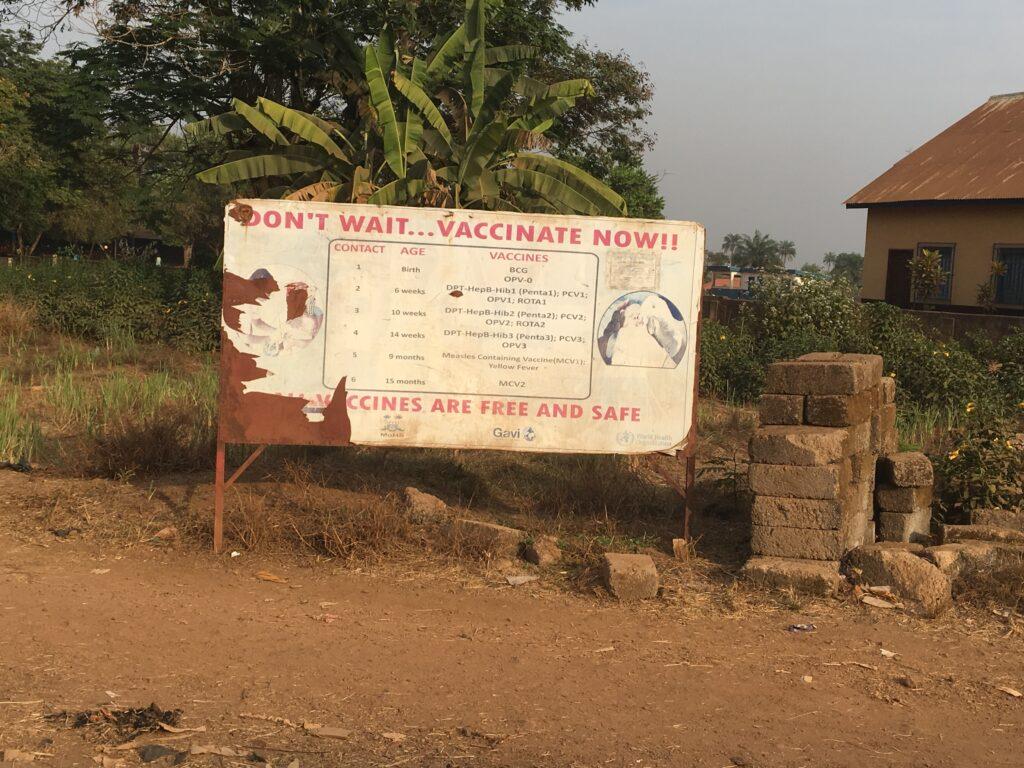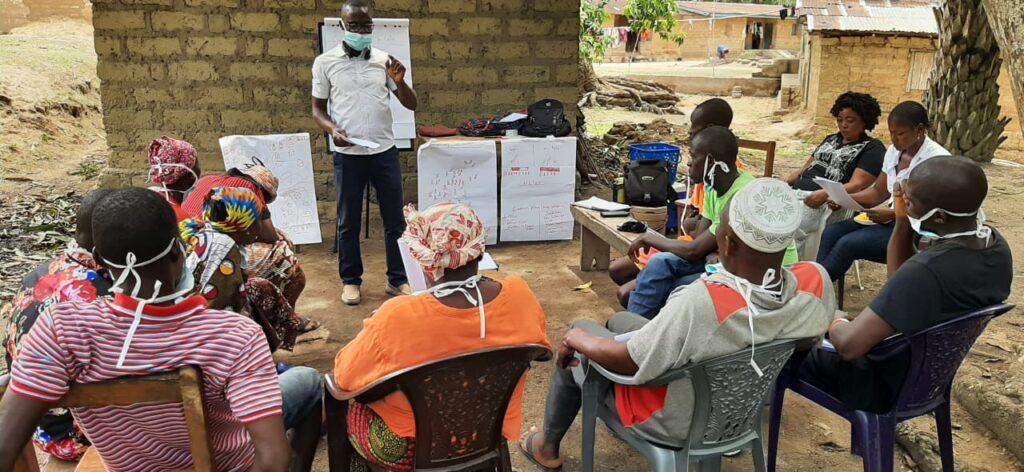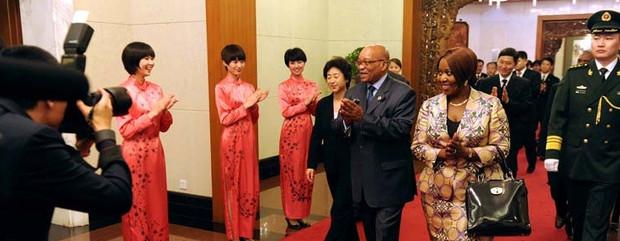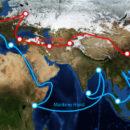
Debating Ideas is a new section that aims to reflect the values and editorial ethos of the African Arguments book series, publishing engaged, often radical, scholarship, original and activist writing from within the African continent and beyond. It will offer debates and engagements, contexts and controversies, and reviews and responses flowing from the African Arguments books.

Growing fears of a “third wave” of Covid-19 across the world have intensified discussions about vaccine inequity, as some nations find themselves better prepared to combat rising infections than others. Hoarding of doses by high income countries, export bans and resistance to waiving patents to enable wider vaccine manufacturing are leading to what the WHO’s Director General called “vaccine apartheid”. Whilst countries like the United Kingdom have fully vaccinated over half their population, only about 1% of the population on the African continent has been fully vaccinated. Initiatives like COVAX, which aim to support equitable vaccine access, have been underfunded and pledges made at the G7 meeting in early June fell significantly short of the amounts of doses required by the WHO. COVAX’s aim to vaccinate just over 20% of each participating country’s population by the end of 2021 is not only insufficient to protect the world against the emergence of new variants. The charity model has also been critiqued for being inadequate, reproducing inequalities and failing to acknowledge and address deeper injustices in global health. African Union envoy Strive Masiyiwa, for example, pointed to a deliberate moral failure, suggesting that African leaders were “misled” into “believing that the whole world was coming together to purchase vaccines, not knowing that we had been corralled into a little corner while others ran off and secured the supplies”. Similarly, a European policy that would not allow people vaccinated with AstraZeneca vaccines manufactured in India (which constitute the majority of COVAX doses) entry into Europe has raised new questions about how vaccine inequity is linked to other exclusionary practices. The debate over vaccination, in other words, is opening up bigger conversations about definitions of global solidarity, including recent calls for a reframing of the issue as one of reparative justice as well as detailed discussions about how manufacturing capacity might be scaled up in African countries.
Debates on vaccine equity often appear technical, focused on diplomacy or obscure intellectual property law. As this topic becomes increasingly central to how we define contemporary global justice, we should also ask who gets to define the parameters of vaccine development and deployment, and where the space for public debate begins and ends. Often when it comes to vaccination, policymakers only imagine the role of the public through concerns about potential hesitancy. Of course, vaccine confidence is extremely important, especially when rolling out a vaccination campaign during a health emergency. Yet the spectre of “refusal” can often obscure the much more complex reasons and conditions that build or undermine trust in vaccine deployments in times of crisis. At this critical juncture, then, how can we re-imagine what vaccine equity looks like, and what the role of the public might be in that debate? In particular, how can we redefine the contours of vaccine justice to bring together questions of vaccine development, supply, access and confidence in public deliberations? Some experiences from Sierra Leone that we have been documenting since the last Ebola outbreak through to today’s Covid-19 pandemic offer some insights that we believe hold important lessons for global discussions.
Over the last year Sierra Leone fared comparatively well in facing the Covid-19 pandemic, registering relatively few cases and deaths until a recent spike in early June 2021 associated with the arrival of the Delta variant amongst a mostly unvaccinated population. In March this year, Sierra Leone received its first COVAX consignment of 96,000 doses out of 528,000 pledged, and 42,000 doses of AstraZeneca from the African Union, whilst the Chinese government donated 200,000 doses of the Sinopharm vaccine. These doses are nowhere near enough to cover the country’s 7.8 million population. At the same time, officials such as the recently appointed Minister of Health Dr Austin Demby expressed concerns about potential challenges in uptake, fearing that some of the currently available doses may go to waste. This sparked additional efforts by District Health Management Teams (DHMTs), which are allocating more funds to reinforce the uptake of the AstraZeneca vaccines that are closer to expiration period. In communities across Sierra Leone, discussions have been ongoing about how to best control the disease if it starts overwhelming the system. There, lessons from Ebola are proving valuable as public health officials and civil society alike re-activate their expertise and networks of response. Memories of Ebola however also act as reminders of the challenges of gaining public trust in a health emergency, as similar anxieties re-emerge around the nature and veracity of Covid-19 alongside concerns about the social and political implications of public health regulations.
To think through these challenges, we are inspired by conversations we have had over the last few years with participants in the Ebola vaccine trials, district public health officials, community health workers and the general public in Kambia District (North Western Sierra Leone) about all aspects of the vaccine deployment process, from development to delivery. From these conversations, we consider three key lessons to be particularly important for re-imagining public engagement in the current challenges the world faces to bring Covid-19 under control and to become prepared for future infectious disease outbreaks.
Participation in vaccine development
The first lesson concerns the value of involving both participants and the general public in shaping the processes through which vaccines are developed. Clinical trials are a key component in vaccine development as they make it possible to test either the efficacy of or the immune response generated by novel vaccines. Engaging with those who chose to participate in the trials of the Ebola vaccine at the tail-end and immediate aftermath of the epidemic in Sierra Leone highlighted deep uncertainties and in some instances mistrust in both government and international humanitarian workers, including questions about profit motives not dissimilar to those being raised by critics of the current vaccine dispensation. These discussions also highlighted a wide range of motivations for deciding to contribute to the development of vaccines. Some of these included feelings of citizenship and a wish to sacrifice for the nation in a moment of crisis, as well as hopes of accessing better healthcare opportunities. Public perspectives on trials should not however be limited, as they often are, to questions of recruitment of participants. Expanding the space of public engagement would allow us to consider how the design of clinical research itself might better include citizen voices. In Sierra Leone this included listening to perspectives on trial procedures such as randomization or exploring how local economies might determine deliberations on reimbursement, or participants and ideas of what fairness looks like. Embedding vaccine research in the communities where it is taking place, particularly in times of crisis where uncertainty is rife and the stakes of medical research are high, should be a key first component in an expanded vision of vaccine justice.

FDG vaccination sign in Kambia, April 2020
Confronting mistrust
A second lesson is around how to directly confront the thorny question of mistrust. Our studies on perspectives of Ebola, and more recently Covid-19, vaccines have made clear the importance of taking seriously specific and often legitimate concerns that people have around novel vaccines. In our experience, there are two aspects to this. Firstly, we need to acknowledge that vaccine confidence cannot be disentangled from mistrust in the broader health system and political institutions, including international bodies. In this sense, this is not a problem with a quick fix. In our research with Community Health Workers on vaccine hesitancy in Kambia’s border communities, we saw how everyday interactions with healthcare workers, and particularly feelings of marginalisation and even humiliation, and the reality that the wealthy have priority to access health services, were affecting willingness to turn up for vaccination appointments. With trust in vaccination so closely related to structural inequalities in access to quality healthcare, including long-term defunding of health services through international policies, questions of access and demand seemed harder to disentangle. Similarly, fears surrounding both the Ebola and Covid-19 response, and particularly concerns that these epidemics may be “man-made” with an intention to decimate African populations, pointed to much longer-standing fractures in state-society relations as well as concerns about predatory Western interests. Secondly, however, whilst the deep roots of mistrust need to be attended to, when asked directly about their perspectives on vaccines, our interlocutors often raise very specific concerns about the safety of new vaccines or concerns about potential side-effects. Engaging the public in debates about vaccine confidence, then, means approaching the challenge as a multi-dimensional issue, directly addressing specific concerns but also paying attention to the drivers of mistrust outside of the vaccine encounter.

Co-author Anthony Mansaray facilitating community meeting with healthcare workers on vaccine confidence
Engaging publics in deployment decisions
Thirdly, once a vaccine has been developed, considerations of how it is deployed, particularly in emergency situations, are rarely considered to be a topic for public discussion. However, our research has shown at least two areas where citizen engagement with logistical and ethical questions around deployment could make important contributions. To begin with, experiences with routine vaccination have shown how strategies for delivering vaccines to the population can at times not be well matched to the everyday realities faced by different groups. For example, in Kambia’s border areas, vaccination campaigns needed to be better aligned with farming schedules and trading obligations in neighboring Guinea. Questions of access are just as important for Covid-19 vaccination, as the number of distribution points in Sierra Leone remain currently fairly limited and therefore require people to travel to receive a dose. In Kambia, for example, only two static points were established, and one mobile team has been tasked to rove around the District. These limits may not only limit first dose uptake but may pose a challenge to completion of the second dose. Indeed, discussions we have been holding across rural communities in Kambia have led to rich debates about the logistics of vaccine deployment. In one village, for example, participants told us that if given a choice they would prefer “pop up” vaccination centres near their homes, not only for ease of access, but because seeing neighbours and respected local authorities taking a Covid-19 vaccine would strengthen their confidence. These discussions also contended with difficult ethical issues, including what to do about limited supplies—where some participants argued that they would rather have only one dose if it meant that more people in the community could be protected, even if it meant lower efficacy. Similarly, in a village that had experienced extended, militarized confinement during the Ebola outbreak, a lively discussion on Covid-19 vaccines raised new questions around the ethics of prioritization: should elders be prioritized because they are more at risk from Covid-19, or should young people rather have first access because they need to work? An elderly chief for example argued that his generation had already lived their lives as he proposed that perhaps the young should be given protection first. These discussions at the village level mirror the kinds of questions that global vaccine inequity poses and what deliberating on solidarity might look like.

Co-author Mahmood H. Bangura running community meeting with healthcare workers on vaccine confidence
These three lessons highlight the specific questions that emerge for those in charge of deploying vaccines in Sierra Leone. However, they also show that existing global debates on the parameters of vaccine equity have restricted the remit of public engagement to their detriment. Global inequities in vaccine supply have sparked new contestations of historical and contemporary injustice, opening up the space to imagine new possibilities. As we continue to advocate for expanded vaccine supply and access, including through Intellectual Property waivers, knowledge transfers and scaling up manufacturing and delivery mechanisms, we should also expand our understanding of vaccine justice and open up the space for who gets to define its parameters. Our conversations in Sierra Leone point to the importance of bringing together questions of supply and demand, equity and confidence, and to involving citizens in the ethical, logistical and political debates that underpin the whole vaccine process from development to delivery. Public debates on these issues are already happening: they are visible in both anxieties and hopes that circulate around vaccination, in popular critiques and everyday exchanges about what quality healthcare should look like or in deliberations around the ethics of medical research and emergency vaccination in times of crisis. It’s time that global leaders listened.





